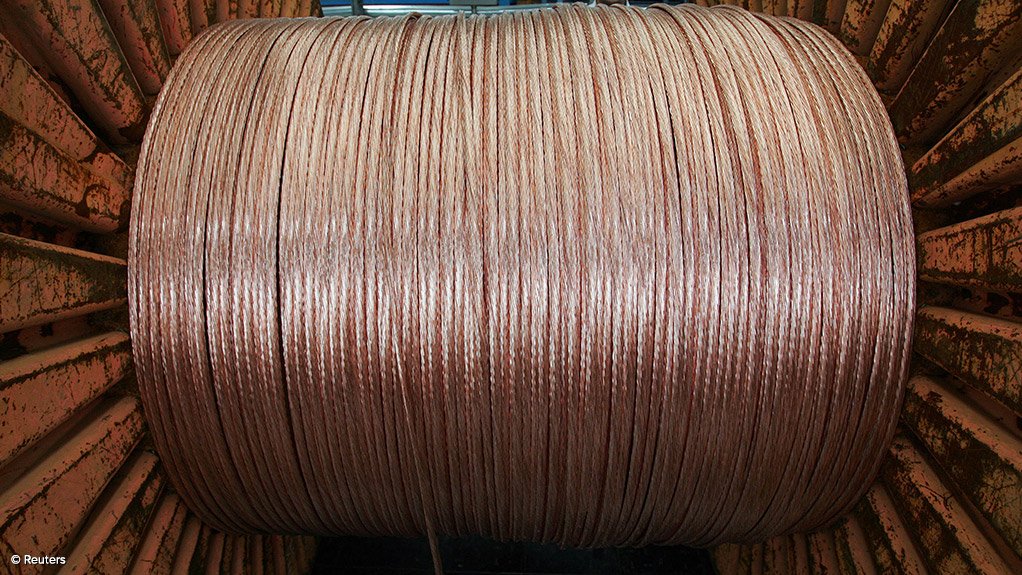The criminal justice system does not deal effectively with cable theft and theft of public infrastructure, Deputy Cooperative Governance Minister Andries Nel said on Monday.
"There are weaknesses in our criminal justice system where these matters often get treated as petty crimes," he said during a discussion at an Association of Municipal Electricity Utilities conference in Midrand.
"We all talk colloquially about cable theft. In fact, the infrastructure that is affected goes far beyond cables. So I would rather talk about the theft of public infrastructure of a metallic nature."
He said that since the amendment of the Second Hand Goods Act, the number of arrests in relation to the theft of copper and other non-ferrous metals had increased.
"[However] what we haven't seen is a concomitant rise in convictions – one or two appropriate sentences. That is really the essence of the problem."
He said the problem of cable theft was recently evident through the theft of parts of power pylons and the theft of railway tracks.
"There is a huge impact on the broader provision of basic services, where electricity supply is interrupted, that can also lead to the interruption in the supply of water such as we have seen in Gauteng recently," Nel said.
The theft of nonferrous metals could also impact social stability.
"Many of the protest actions that we see as service delivery protests, once you investigate more closely, often come back to interruptions of services which in turn are occasioned by the theft of public infrastructure."
He said government had established a working group, consisting of the ministers of co-operative governance, police, justice, state security and public enterprises, to deal with the problem.
"What we want to do in the short-term is ensure... that there is better information and intelligence shared among law enforcement, municipalities, and industry.
"We are looking at a range of proposals, both in operation and in terms of policy -– looking at possible amendments to legislation."
Nel said there was a proposal to amend the Precious Metals Act to include copper, which would assist police and the prosecution and would mean heavier sentences.
There was also another proposal to make the theft of electricity a crime and another of placing the onus on someone who had a certain amount of copper or other metals in their possession to explain why.
Acting Johannesburg mayor and infrastructure MMC Matshidiso Mfikoe welcomed government's "direction" on the crime.
"It is being treated as a petty crime when in actual fact the effect on the economy is not necessarily spoken about," she said.
"We did it with Nyaope. Why can't we do the same here -- with pronouncing as government that we are not going to tolerate any cables being stolen in the country?"
Colonel Gerhard Pretorius, who is in charge of the South African Police Service's team looking into the theft of non-ferrous metals, said the main problem preventing crimes like cable theft was the type of perpetrator.
"Our most common theft of copper cables has been done by opportunistic or petty thieves. It is very difficult to determine where they are going to strike next," he said.
"So we cannot plan for a person who tonight needs drugs and steals a copper cable. How do you plan for that?"
He said this was in contrast to syndicates who stole cables. The Hawks and the organised crime unit had systems in place to deal with syndicates.
"In terms of petty theft, we are not getting enough information in order to plan properly."
To combat this, a nonferrous metals crime combating committee had been formed.
South African Chamber of Commerce and Industry CEO Neren Rau said in response to a question at the discussion that demand from the Chinese was driving up the price of copper.
"Diplomatically we cannot go to a different country and ask them to take responsibility for a problem we couldn't control," he said.
"We would also be entering the discussion with an accusatory tone, which we also don't want to do with a key trading partner."
EMAIL THIS ARTICLE SAVE THIS ARTICLE
To subscribe email subscriptions@creamermedia.co.za or click here
To advertise email advertising@creamermedia.co.za or click here











